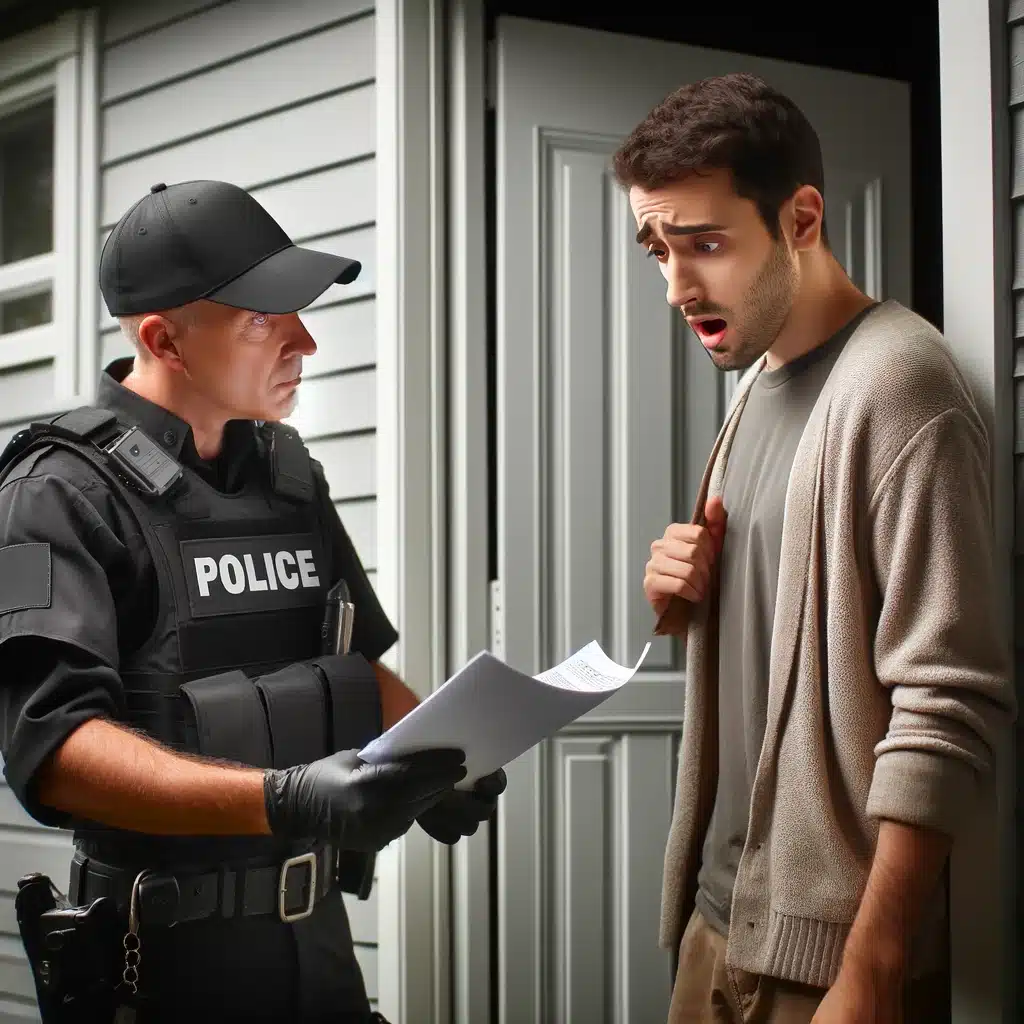Navigating the complexities of the legal system can be daunting, especially when dealing with terms like “capias warrants.” What’s capias, and why is it significant in the legal landscape of Texas? This article delves into the critical aspects of capias warrants, a unique and often misunderstood element of the legal process.
Whether you’re a defendant, a legal professional, or simply someone keen on understanding the intricacies of Texas law, this guide offers a clear and concise overview of what capias warrants entail, their types, and the implications they carry.

What is a Capias Warrant?
Understanding the Basics
A capias warrant is a judicial directive that plays a crucial role in the enforcement of court orders in Texas. Unlike a regular arrest warrant, which is typically issued based on probable cause of a crime, a capias warrant is specifically tied to a court’s jurisdiction and is issued when an individual, known as the defendant, fails to comply with court orders.
Situations Leading to a Capias Warrant
Capias warrants are typically issued under several scenarios, predominantly when a defendant:
- Fails to Appear in Court: When a defendant does not show up for a scheduled court appearance, it often leads to the issuance of a capias warrant.
- Non-payment of Fines or Court Fees: Defendants who neglect their financial obligations ordered by the court find themselves at risk of a capias warrant.
- Non-compliance with Court Orders: This includes situations where defendants fail to complete mandatory community service, attend counseling sessions, or adhere to other specific directives set forth by the court.
Capias vs. Regular Arrest Warrants
The distinction between a capias warrant and a regular arrest warrant is significant. A regular arrest warrant is issued based on probable cause that a person has committed a crime. In contrast, a capias warrant is directly linked to non-compliance with court orders or failure to adhere to conditions set forth in a previous legal proceeding.
Consequences of a Capias Warrant
The issuance of a capias warrant can have severe implications for the defendant:
- Arrest and Custody: Law enforcement officers are authorized to arrest and detain individuals under a capias warrant, potentially leading to imprisonment until the court’s orders are satisfied or a hearing is scheduled.
- Legal and Financial Repercussions: Non-compliance can result in additional fines, legal fees, and other penalties.
- Long-term Impacts: A capias warrant can be entered into state and national databases, affecting the defendant’s ability to secure employment, travel, and engage in other civil activities.
Understanding the full scope and impact of a capias warrant is crucial for anyone involved in the legal process in Texas. This knowledge not only aids in compliance with legal obligations but also helps in avoiding the serious consequences that can arise from such warrants.
Different Types of Capias Warrants in Texas

Texas law recognizes several types of capias warrants, each serving a specific purpose in the legal system. This section will explore the nuances of Alias Capias Warrants, Bench Capias Warrants, and Capias Pro-Fine Warrants.
1. Alias Capias Warrant Definition and Context
Courts particularly issue an Alias Capias Warrant when a defendant fails to appear for a scheduled court date. The term “alias” suggests that the court issues the warrant under an assumed name or when the defendant no longer uses their legal name after failing to appear in court.
Circumstances of Issuance
Courts commonly issue this type of warrant in scenarios where a defendant, notified of a court appearance, neglects or chooses not to attend. The court uses it as a tool to compel the defendant’s attendance.
Legal Implications
The issuance of an Alias Capias Warrant leads to the defendant’s immediate arrest and compulsion to appear in court. The warrant remains active until authorities bring the individual to court, and ignoring it can lead to serious legal troubles, including potential incarceration.
2. Bench Capias Warrant: Defining the Warrant
Courts distinctly issue a Bench Capias Warrant for civil or criminal contempt of court. This type arises when a person disobeys a court order, such as failing to pay a fine, attend a counseling session, or complete community service.
Distinguishing Characteristics
Unlike other warrants, a Bench Capias Warrant does not stem from probable cause of a crime but from a direct violation of a court’s orders. It’s a judicial response to non-compliance, highlighting the court’s authority to enforce its directives.
Actions for Resolution
If faced with a Bench Capias Warrant, immediate action is necessary. Consulting with a legal professional is crucial to navigate the complexities of the situation and to mitigate potential negative consequences.
3. Capias Pro-Fine Warrant

A Capias Pro-Fine Warrant is issued exclusively for failing to pay fines or fees related to a criminal conviction. As the name suggests, it’s a mechanism to enforce financial obligations imposed by the court.
Issuance Circumstances
This type of warrant comes into play when a defendant, after being convicted of a crime, does not fulfill the financial penalties imposed by the court, such as fines or court fees.
Urgency of Resolution
Resolving a Capias Pro-Fine Warrant promptly is critical. Failure to do so can lead to arrest and further legal complications, emphasizing the importance of addressing any court-imposed financial obligations without delay.
Unlike other warrants, a Bench Capias Warrant does not stem from probable cause of a crime but from a direct violation of a court’s orders. It’s a judicial response to non-compliance, highlighting the court’s authority to enforce its directives.
Actions for Resolution
If faced with a Bench Capias Warrant, immediate action is necessary. Consulting with a legal professional is crucial to navigate the complexities of the situation and to mitigate potential negative consequences.
4. Capias Pro-Fine Warrant
A Capias Pro-Fine Warrant is issued exclusively for failing to pay fines or fees related to a criminal conviction. As the name suggests, it’s a mechanism to enforce financial obligations imposed by the court.
Issuance Circumstances
This type of warrant comes into play when a defendant, after being convicted of a crime, does not fulfill the financial penalties imposed by the court, such as fines or court fees.
Urgency of Resolution
Resolving a Capias Pro-Fine Warrant promptly is critical. Failure to do so can lead to arrest and further legal complications, emphasizing the importance of addressing any court-imposed financial obligations without delay.
Legal Responses and Resolutions
When confronted with a capias warrant, the immediate step should be to seek professional legal advice. The complexities and nuances of these warrants require a knowledgeable approach to navigate successfully. Legal counsel can provide essential guidance and representation, ensuring that your rights are protected throughout the process.
Steps to Take After a Capias Warrant Issuance
- Immediate Legal Consultation: Upon learning of a capias warrant against you, promptly consult with an attorney to understand your legal position and options.
- Understanding the Warrant: Determine the type of capias warrant issued and the specific reasons behind it. This knowledge is crucial for formulating an effective response strategy.
- Compliance and Resolution Plan: Work with your lawyer to develop a plan to comply with court orders or resolve the underlying issues that led to the warrant.
Role of an Experienced Attorney
An experienced attorney is pivotal in:
Navigating Legal Complexities: Understanding the legal system and specific court requirements can be challenging. A seasoned attorney can effectively guide you through these complexities.
Protecting Your Rights: Ensuring that your legal rights are not infringed upon during the process is crucial. Legal representation can safeguard these rights.
Resolution and Negotiation: Lawyers can negotiate with the court and opposing parties to find a resolution that minimizes negative consequences for you.
How the Law Office of Bryan Fagan Can Assist
The Law Office of Bryan Fagan specializes in handling cases involving capias warrants in Texas. With a deep understanding of the state’s legal system and a commitment to client advocacy, their team is well-equipped to guide clients through these challenging legal situations.
Legal Services Offered
Defense Building: The legal team can develop a robust defense strategy tailored to the specifics of your case.
Resolving Legal Issues: Whether it’s negotiating with the court or complying with court orders, they work diligently to resolve the issues related to your capias warrant.
Expert Legal Advice: Receive comprehensive advice and guidance throughout your legal journey, ensuring you make informed decisions.
Contact and Consultation Options
The Law Office of Bryan Fagan offers flexible consultation options to suit your needs:
Zoom Meetings: For convenience and accessibility.
Google Meet Sessions: Another digital option for remote consultations.
Email Consultations: For those who prefer written communication.
In-Person Appointments: For a more personal and direct consultation experience.
For assistance with your capias warrant situation or any related legal challenges, contact the Law Office of Bryan Fagan at (281) 810-9760. Benefit from their expertise and commitment to achieving the best possible outcomes for their clients.
Ebook
![Adobe Stock 62844981[2]](https://www.bryanfagan.com/wp-content/uploads/2023/09/AdobeStock_628449812.jpeg) If you want to know more about what you can do, CLICK the button below to get your FREE E-book: “16 Steps to Help You Plan & Prepare for Your Texas Divorce“
If you want to know more about what you can do, CLICK the button below to get your FREE E-book: “16 Steps to Help You Plan & Prepare for Your Texas Divorce“
![Divorce Wasting Assets[4]](https://www.bryanfagan.com/wp-content/uploads/2023/09/Divorce-wasting-assets4.jpeg) If you want to know more about how to prepare, CLICK the button below to get your FREE E-book: “13 Dirty Tricks to Watch Out For in Your Texas Divorce, and How to Counter Them” Today!“
If you want to know more about how to prepare, CLICK the button below to get your FREE E-book: “13 Dirty Tricks to Watch Out For in Your Texas Divorce, and How to Counter Them” Today!“
Other Related Articles:
- Handling issues related to the Right of First Refusal in Texas family law cases
- Ask yourself: Is including a right of first refusal in your parenting plan the right thing to do?
- What is a right of first refusal in a Texas parenting plan?
- Texas Divorce and the Right of First Refusal
- The morality clause in Texas family law
- 2023 Guide to Parenting Agreements & Access in Family Law
- Everything You Need to Know About Family Law in Texas
- Guardian Ad items in Family Law
- Why is it critical to hire an attorney who is experienced in family law?
- Have a family law related problem in Texas? Here is some useful information for you
- Texas Divorce and the Right of First Refusal
- What is a Right of First Refusal?
Frequently Asked Questions
What is the first right of refusal in Texas?
Is right of first refusal custody law?
What is the first right of refusal?
Can a dad refuse to give child back in Texas?
Bryan Fagan, a native of Atascocita, Texas, is a dedicated family law attorney inspired by John Grisham’s “The Pelican Brief.” He is the first lawyer in his family, which includes two adopted brothers. Bryan’s commitment to family is personal and professional; he cared for his grandmother with Alzheimer’s while completing his degree and attended the South Texas College of Law at night.
Married with three children, Bryan’s personal experiences enrich his understanding of family dynamics, which is central to his legal practice. He specializes in family law, offering innovative and efficient legal services. A certified member of the College of the State Bar of Texas, Bryan is part of an elite group of legal professionals committed to ongoing education and high-level expertise.
His legal practice covers divorce, custody disputes, property disputes, adoption, paternity, and mediation. Bryan is also experienced in drafting marital property agreements. He leads a team dedicated to complex family law cases and protecting families from false CPS allegations.
Based in Houston, Bryan is active in the Houston Family Law Sector of the Houston Bar Association and various family law groups in Texas. His deep understanding of family values and his professional dedication make him a compassionate advocate for families navigating Texas family law.




